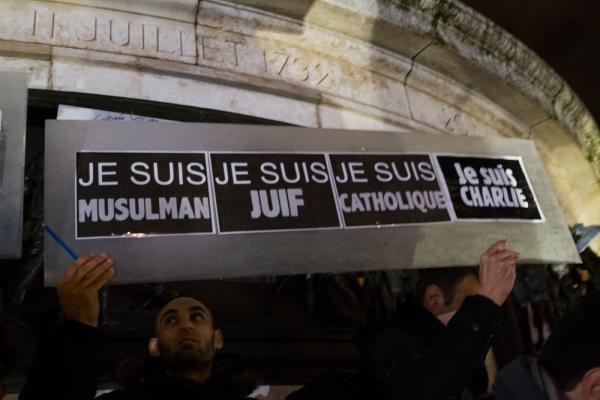Our first response to the horrible and frightening violence of Paris should be grief. False religion always makes the religious grieve, but when it engages in ghastly violence against other human beings who are made in God’s image, it should break our hearts as it breaks God’s.
These hateful terrorists, masquerading as religious believers, said on video they were the “avengers” of the prophet Mohamed. As such, they murdered cartoonists in the office of a magazine they identified with blasphemy. What these killers, and those like them, don’t understand is that they are the real blasphemers now by forcing their false and murderous distortions of Islam on the world and on other children of God. Their religion is now violence itself, a blasphemous interpretation of Islam, which in its truest expression is a religion of peace. Rev. Wes Granberg-Michaelson, from the Reformed Church in America, has called Paris an “identity theft” of the Muslim faith. Several Muslim leaders have said that the damage terrorists like these do to the image of the Prophet Mohammed is much greater than any cartoonist could ever do.
While the tenet of freedom of speech has been invoked throughout the media coverage of the attacks, the religious implications here run much deeper. They are about how we in the faith community should respond when we are attacked by those who disdain us, disrespect us, distort us — as many believe the satirical French magazine, Charlie Hebdo regularly did — and even viciously attack us. The magazine has often crudely, provocatively, and even gleefully satirized all religions in very offensive ways, suggesting that the fundamentalisms in all our religious traditions completely define the meaning of faith. Charlie Hebdo is apparently driven by its own ideology of secular fundamentalism, which regularly strikes out at all people of faith.
Read the Full Article

